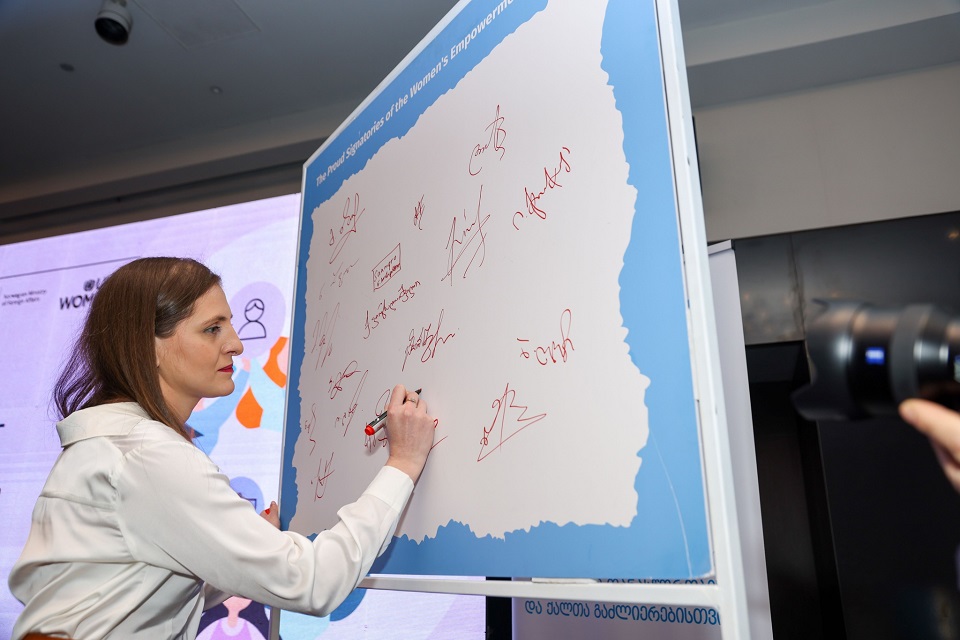Conference held by UN Women on business supporting an equal and diverse work environment
Date:

Equality and diversity are essential prerequisites for a decent work environment, and business can play a vital role in creating it. The annual conference of UN Women, which was held in Tbilisi for the fifth time on the Women’s Empowerment Principles, was dedicated to this topic.
The event was attended by representatives of companies, business associations, civil society and academic circles, and specialists in organizational development, human resources management, gender and human rights protection. Many of the attendees represented companies that have already signed on to the Women’s Empowerment Principles.
“Nowadays, business needs the experience and knowledge of different teams,” remarked Medea Tabatadze, one of the speakers at the conference and the managing partner of the consulting and recruiting company Insource. “This is confirmed by the financial indicators. For example, Fortune 500 reports show that the results of companies in which there are women in executive positions are 22 per cent higher. The environment is very diverse; therefore, the workforce and culture should also be diverse.”
In the course of the panel discussions, the event participants discussed the role of equality, diversity and the well-being of employees in the workplace, considered the contribution that human resources management strategies of private companies can make to the promotion of equality and diversity, and shared with one another their own or international experience in the formation of these strategies, among other topics.
Anna Arganashvili, one of the participants of the discussion and the executive director of the non-governmental organization Partnership for Human Rights, noted: “Years ago, the private sector was alienated from human rights and thought that inclusion and diversity were self-imposed obligations, but this attitude is gradually changing. Business sees for itself how different people work in this field and how important the well-being of its employees is to it. Therefore, if people’s rights are protected in the private sector, diversity will be promoted, and business too will work better and the employees will feel better as well.”
At the end of the event, as in previous years, new companies joined the Women’s Empowerment Principles. It should be noted that the number of signatories has already increased to 170 in Georgia, which is quite an important result considering the existing scale of the private sector. UN Women has been working on the implementation of the Women’s Empowerment Principles in Georgia since 2014, and it carries out this activity with the support of the Government of Norway.